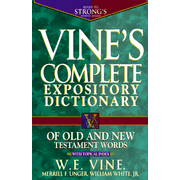Part 1
Scripture Reading: Proverbs 29:1-7
Text: (Proverbs 29:2) “When the righteous are in authority, the people rejoice: but when the wicked beareth rule, the people mourn.” (KJV)
Proverbs was written by a godly king who knew God’s principles of spiritual leadership. We are all leaders in some sphere and scripture teaches us how to use our leadership for God in a wise and spiritual way. There is a natural leadership and there is a spiritual leadership. Great leaders are not always spiritual leaders. For example, Saul was a natural, born leader. He was head and shoulders above the people and the people chose him as their leader because he had some ability. Yet, he was not God’s choice and when his weak character finally brought him down, God said, “I have chosen Me a man after my own heart.” David was not a natural for leadership. Samuel, when choosing God’s king, would have chosen all his brothers over him, but God chose David and said, “Man looketh on the outward appearance but the Lord looketh on the heart.”
Every spiritual leader, whether pastor, deacon, Sunday School teacher, Christian school teacher, parent, or Christian on the job should periodically analyze their spiritual leadership. Just what is leadership anyway? Someone has said that leadership is seeing further down the road than others can. The best definition of leadership I ever heard is that leadership is simply “influence.” The more influence I have the more leadership I have. Godly leadership means godly influence. Solomon in Proverbs 29 shows us a number of principles regarding godly leadership.
(1) The greatest asset of a godly leader is his own personal godliness.
Proverbs 29:2,7 show us this. “When the righteous are in authority…” “The righteous considereth the cause of the poor.” Solomon is talking about being in authority and he talks about a righteous man. A righteous man is one who has been made righteous in Christ and therefore is desirous to know and do God’s law. He is interested in being right and in tune with the Lord. His own personal walk with God is his most important asset. The reason for this is that we teach a little by what we say, more by what we do, but most by what we are. Jesus in the sermon on the mount emphasized this over and over by saying, “Blessed are the meek…blessed are the poor in spirit…blessed are the peacemakers.” You see what you are is what teaches more than what you say or do! Robert M. McCheyne, the great Scottish preacher said, “The life of a minister is the life of his ministry. My people’s greatest need is my own personal godliness.” There simply is no substitute for personal godliness. Paul in speaking to the young preacher Timothy said, “Take heed to thyself…” In First Timothy 4:7 he said, “Exercise thyself to godliness.” So much today is window dressing. A good front in a spiritual leader only lasts until people get to know you pretty well. This is why Paul said, “Lay hands suddenly on no man…some men’s sins are open, going before to judgment; and other men, they follow after.” What he meant was that leadership should be proved by their character and therefore should not be chosen rashly.
How do you measure godliness?
I think a good yardstick is what happens to people when they get really close to you. How do you impact them? Do people yearn to grow when they are around you? Does your life really impact people? Someone said, “You can instruct and inspire from a distance but you can only impact up close.”
The greatest impact of a parent on a child is by what that parent is on a day by day basis. The greatest impact of a pastor, school teacher, or coach is in their own personal life and godliness. So the greatest asset any spiritual leader has is his own personal walk with God!
 |
Vine’s Complete Expository Dictionary of Old and New Testament WordsBy W.E. Vine / Thomas NelsonThis convenient one volume combines Vine’s Expository Dictionary of New Testament Words and Unger and White’s Expository Dictionary of the Old Testament. This book allows you to easily access the alphabetized English equivalents of the Greek or Hebrew words from which they are translated. Throughout the text the most significant biblical words are illustrated by Scripture passages, comments, cross-references, ancient and modern meanings, precise etymologies, historical notes, and clearly defined technical information. Each original language is indexed, and the addition of a topical index allows you to access all the dictionary entries pertinent to specific New Testament ideas and teachings.Keyed to Strong’s. |







Pingback: What A Curse! | The Working Pastor
Pingback: Being A Useful Servant By Pastor Dan Reed | Manna For Your Day | The Working Pastor
Pingback: The Power Of Influence By Pastor Dan Reed | Manna For Your Day | The Working Pastor